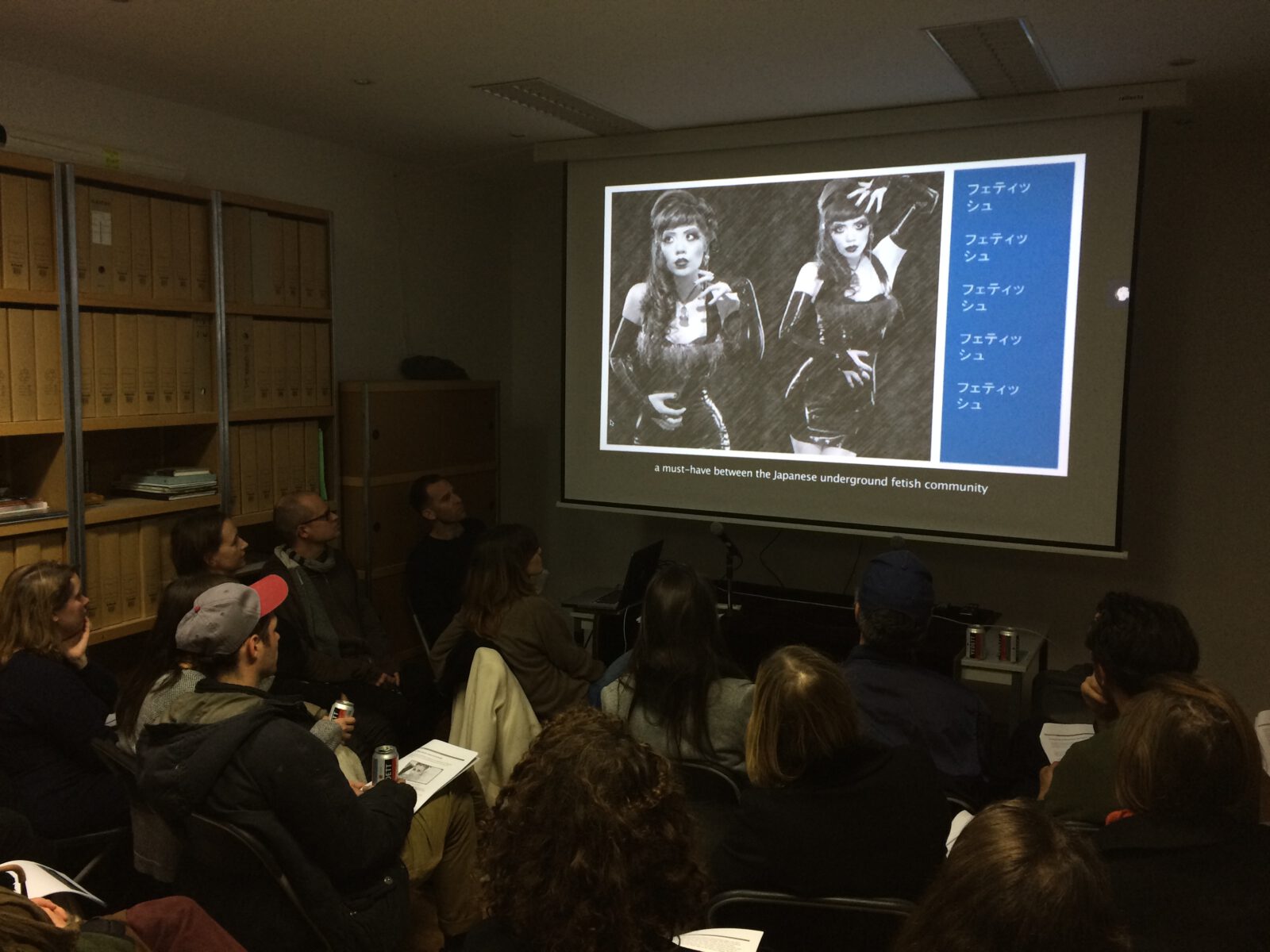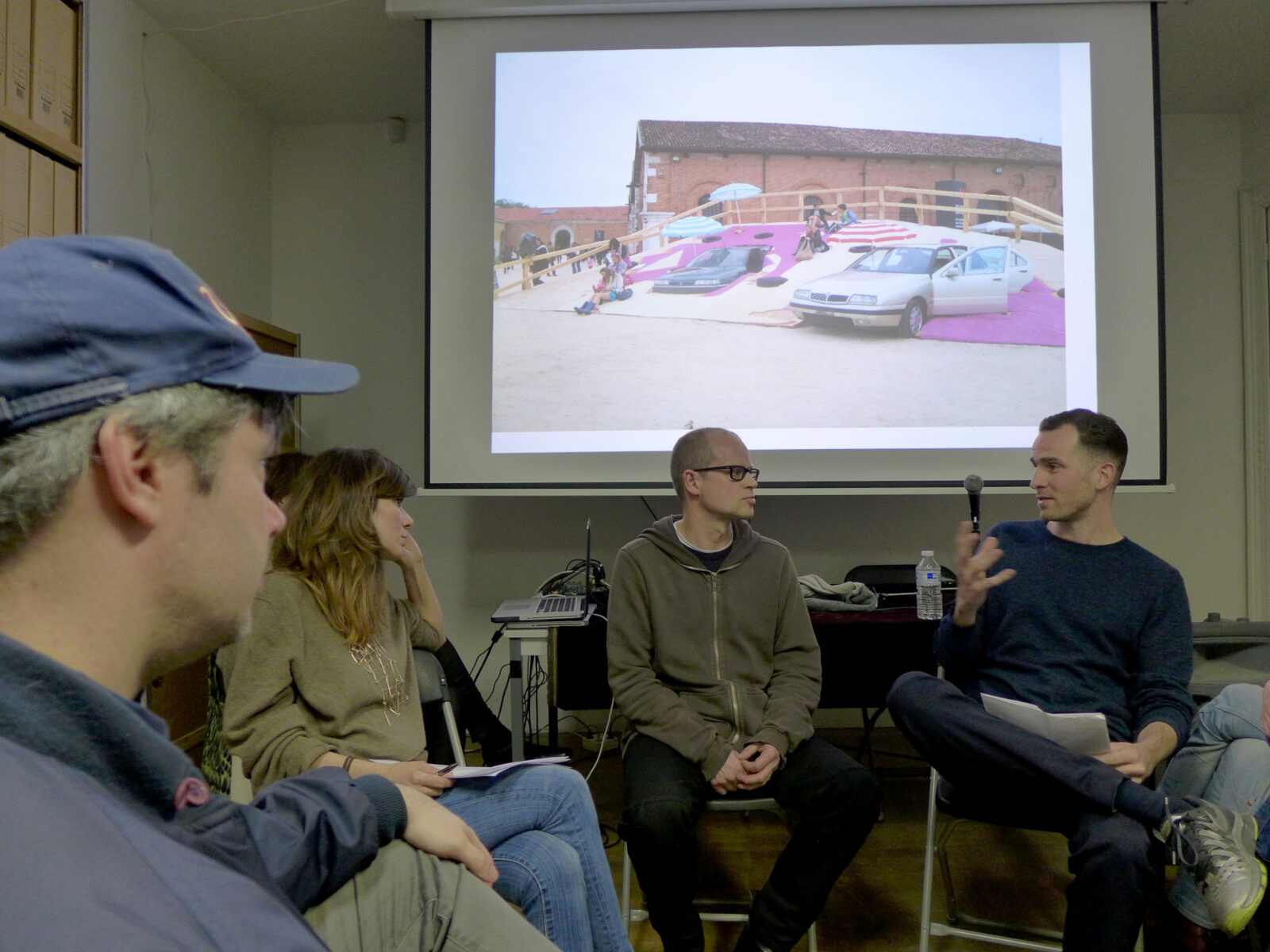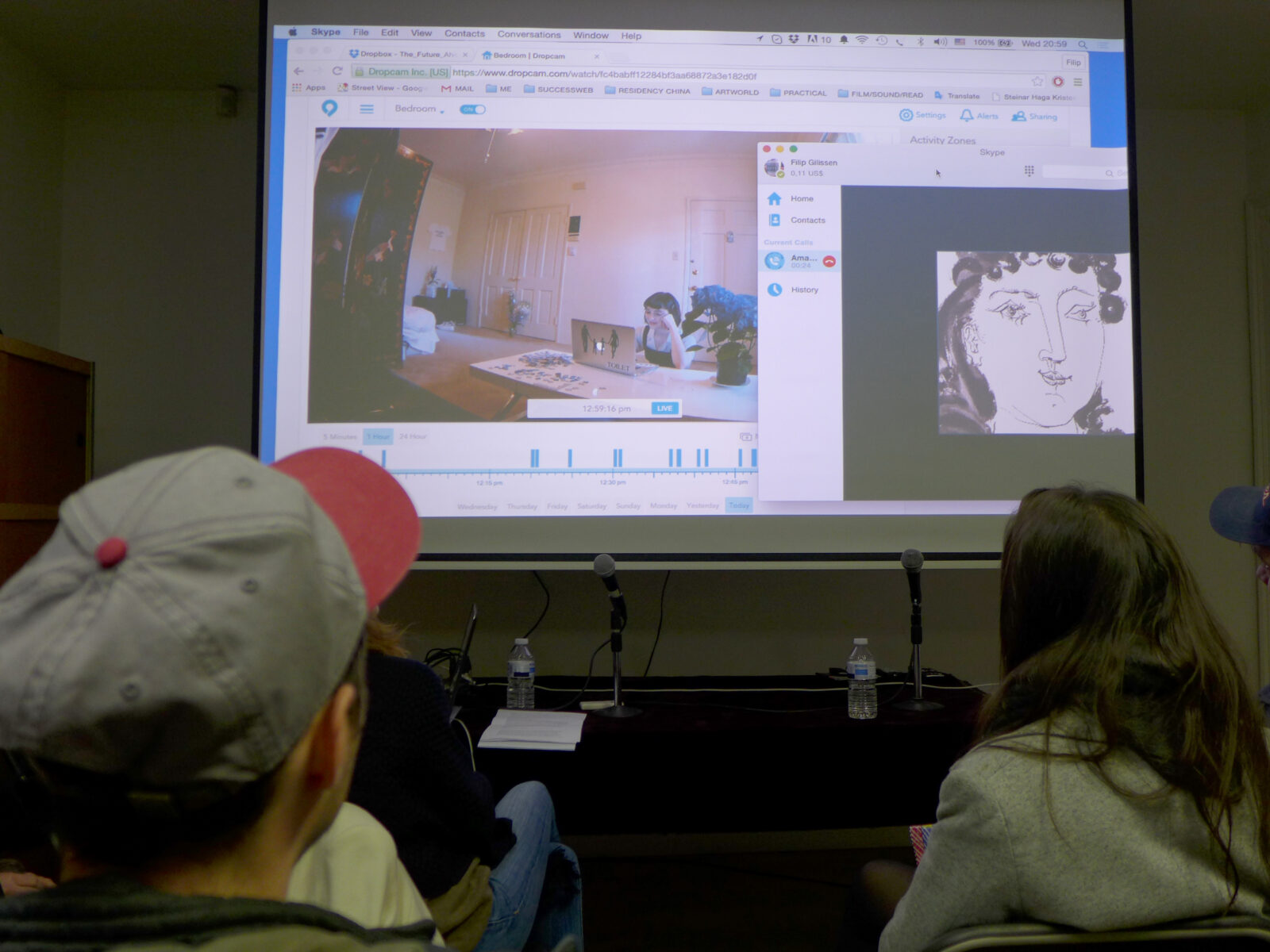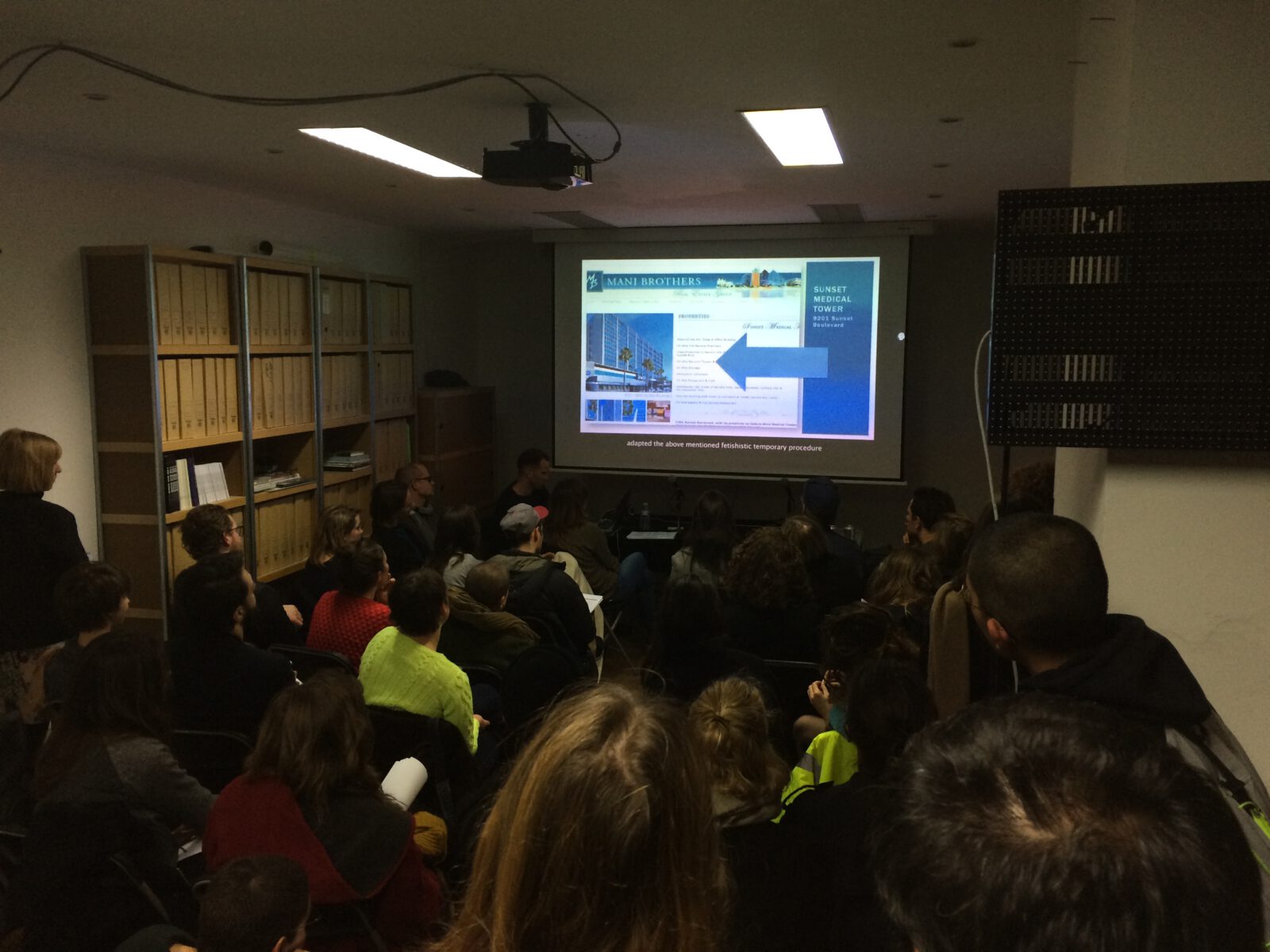Erik Van Lieshout, Amalia Ulman
25.03.2015 - 25.03.2015
Erik Van Lieshout, Amalia Ulman
Politics without Poetics
25.MAR.15
Film projection Erik Van Lieshout ( 7 pm )
Lecture by Erik Van Lieshout ( 8 pm )
Skype lecture by Amalia Ulman ( 9 pm )
On March 25th, NICC has the pleasure to invite you to Politics without Poetics II, the second event in the series, initiated and moderated by Dessislava Dimova and Filip Gilissen. Politics without Poetics II will present Erik van Lieshout’s film “The Workers” (2014, 50’), followed by a conversation with the artist, as well as a Skype lecture and conversation with artist Amalia Ulman.
Politics without Poetics was conceived as an attempt to uncover multiple artistic routes for configuring art as a political practice, weaving global, historical and future perspectives into the discussion.
Art today has become a space where politics proper can be imagined, rehearsed and even practiced, a kind of ‘poetic politics’—a staged ideal of politics, an artistic corrective of reality. In this context, can we formulate an idea of political art without poetics? What would an art without artistic unconscious be? A kind of pure construction, strategy, design? With this series we look into practices that enact the political within and through the limits of reality, refusing the nostalgia of utopian dreams or the hope of art’s “emancipatory effect”.
Politics without Poetics II gives insight into the practices of two artists who address the politics of gender and power, of authenticity and representation; the construction of the artist as a private-public persona and the construction of the artwork as a practice of life and self . They develop a critique of Western modes of representation(s) and modern “supreme fictions”; a desire to think in terms sensitive to difference (of others without opposition, of heterogeneity without hierarchy); ‘a skepticism regarding autonomous “spheres” of culture or separate “fields” of experts; an imperative to go beyond formal filiations (of text to text) to trace social affiliations (the institutional “density” of the text in the world); in short, a will to grasp the present nexus of culture and politics and to affirm a practice resistant both to academic modernism and political reaction’. *
* Hall Foster, The Anti-Aesthetic: Essays on Postmodern Culture, 1983
AMALIA ULMAN (1989, Argentina) lives and works between London (UK) and Gijon (Spain). The main focus of her research are class differences and how they affect social interactions, emotions and human relations. Her work analyses social stratification, cultural capital, class imitation and seduction. Her aim is to scrutinise matters such as hierarchies, power relations, charity and empathy. She graduated from the Central Saint Martins School of Art and Design (London) in 2011. Recent exhibitions include solo shows Savings & Shelves at Headquarters (Zurich), Overcome Cleanse at Galeria Adriana Suarez (Spain), Moist Forever at Future Gallery (Berlin) and duo shows: Profit | Decay at Arcadia Missa (London) and Immune Stability at Steve Turner Contemporary (Los Angeles). She is the founder and curator MAWU-LISA and was one of the panel members of 89+ curated by Hans Ulrich Obrist and Simon Castets for the DLD13 Conference (Munich). She currently thrives for a total conjunction between art and life trying to escape from the gallery and institutional space; following different pathways in an attempt to infiltrate herself in different capitalist environments (for further critique).
ERIK VAN LIESHOUT’s work takes as its themes sex, violence, “high art” and its institutions, and commercial culture. His attitude is often marked by irreverence, a sense for comedy, and sometimes even disingenuous honesty. In 2009 he made a film at the Museum Ludwig in Cologne based on the experience of spending a night alone in the dark museum and encountering Mondrian and others by flashlight. In the summer of 2010, his film installation Commission (2011) documented the experience of running a temporary “shop” in the working-class district of Rotterdam South. Here, instead of simply selling goods, he sought to make connections with the neighborhood and its residents. Previous solo exhibitions include Commission at the MMK Museum für Moderne Kunst, Frankfurt am Main (2012), Erik Makes Happy at BAWAG Contemporary, Vienna (2011), How Can I Help You? at Hayward Gallery Project Space, London (2011), and Im Netz, Museum Ludwig, Cologne (2009). Recent group exhibitions include Manifesta 9 in Genk, Limburg, Belgium (2012) and Melanchotopia at the Witte de With Center for Contemporary Art in Rotterdam (2011). Van Lieshout received a Tiger Award for his short film Janus at the forty-second International Film Festival Rotterdam (2013).
NICC Vitrine
close


